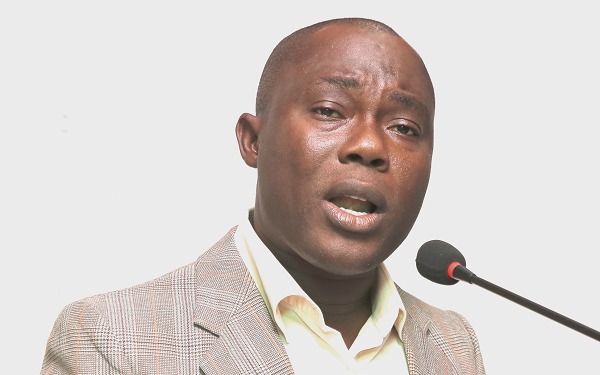The New Patriotic Party (NPP) in Ghana is currently embroiled in a multifaceted leadership crisis, according to Professor Ransford Gyampo, the Acting Chief Executive of the Ghana Shippers’ Authority. This crisis, he argues, permeates all levels of the party structure, from the grassroots to the parliamentary leadership, rendering the NPP increasingly unattractive to the electorate and potentially consigning it to a prolonged period in opposition. Prof. Gyampo, whose comments followed a chaotic incident during a parliamentary vetting process, believes the NPP’s struggles are self-inflicted, stemming from a deep-seated denial of their internal issues and a lack of decisive leadership to address them. He contends that the party’s current trajectory points towards political atrophy unless significant changes are made.
The recent parliamentary upheaval, which involved physical damage to property within the chamber, serves as a stark illustration of the leadership vacuum within the NPP. The incident, occurring during the vetting of ministerial nominees, highlights the internal tensions and lack of discipline within the party ranks. Prof. Gyampo’s critique points to a broader pattern of dysfunction within the NPP, suggesting that the parliamentary fracas is merely a symptom of a deeper malaise. He believes that the party’s inability to maintain order and decorum during such a crucial legislative process speaks volumes about its current state of disarray. This perceived lack of leadership, according to Prof. Gyampo, is fueling the party’s decline and jeopardizing its future electoral prospects.
The implications of this leadership crisis are far-reaching, potentially impacting the NPP’s ability to effectively govern and represent its constituents. Prof. Gyampo argues that the party’s internal struggles are eroding public trust and making it increasingly difficult to attract new members. He predicts that if the NPP fails to address its leadership deficit, it risks becoming increasingly marginalized in Ghanaian politics, ultimately fading into irrelevance. This dire prediction underscores the urgency of the situation and the need for swift and decisive action to rectify the party’s internal divisions.
The criticism leveled against the NPP by Prof. Gyampo is particularly noteworthy given his affiliation with the opposing National Democratic Congress (NDC), having served as an appointee of former President John Dramani Mahama. While some may dismiss his comments as partisan rhetoric, his assessment offers a valuable perspective on the current state of Ghanaian politics. Whether or not one agrees with his conclusions, his critique provides an opportunity for the NPP to engage in critical self-reflection and consider the potential consequences of its internal divisions. His pointed remarks also serve as a reminder of the importance of strong and effective leadership in maintaining political stability and ensuring good governance.
The ongoing ministerial vetting process, marred by the recent disruption, is a critical juncture for the NPP. The party’s response to this incident and its subsequent actions will be closely scrutinized by the public. Whether the NPP chooses to acknowledge and address the concerns raised by Prof. Gyampo and other critics will be a significant indicator of its willingness to reform and its commitment to regaining public trust. The party’s ability to navigate this challenging period will ultimately determine its future viability and its capacity to remain a competitive force in Ghanaian politics.
In conclusion, the NPP finds itself at a crossroads. The leadership crisis identified by Prof. Gyampo poses a significant threat to the party’s future. The recent parliamentary disruption serves as a stark reminder of the urgent need for internal reform and a renewed focus on effective leadership. The party must confront its internal divisions and address the concerns raised by critics if it hopes to regain public trust and remain a relevant force in Ghanaian politics. The coming months will be crucial for the NPP as it grapples with these challenges and charts a course for its future. The party’s response will not only determine its own fate but also have significant implications for the broader political landscape of Ghana.


